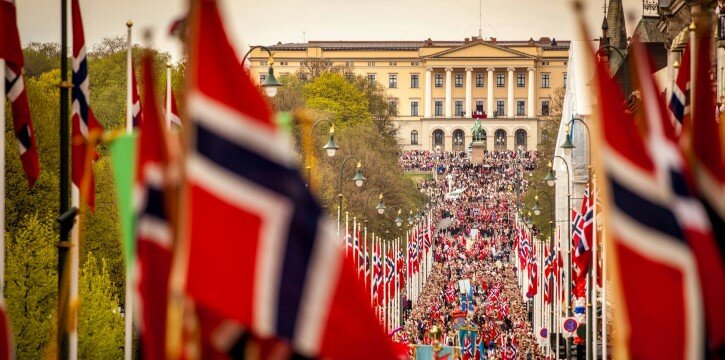The UN has once again voted Norway as the world’s best country to live in. At the same time, new types of inequalities in societies around the world are developing, according to the UN report.
The report is conducted by the United Nations Development Program (UNDP), and it is the 15th consecutive year that Norway tops the list of countries ranked according to the UN Living Conditions Index.
Just behind are Switzerland, Ireland, Germany and Hong Kong. Sweden and Denmark are ranked eighth and eleventh respectively. At the other end of the spectrum are a number of African countries, and all of the bottom 12 countries on the list are African. At the bottom are Chad, the Central African Republic and Niger.
The report concludes that completely new inequalities are developing between people in the world, especially related to education and new technology. Factors that could potentially trigger huge disparities in society in a way the world has not seen since the industrial revolution of the late 18th century, according to the report.
Where the world has previously tried to deal with crises such as hunger, poverty and disease, there are now a number of other factors that are also contributing to the differences between rich and poor countries. In countries with very high human development, the proportion of broadband subscribers is growing 15 times faster than in countries with low human development. At the same time, the percentage of adults with higher education is growing six times faster.
Big gender differences
– What used to be “okay to have”, such as going to university or having access to broadband, is becoming increasingly important prerequisites for success. When people are left with only the most basic, the steps on their path to the future are removed, says Pedro Conceição, director of UNDP’s Human Development Report (HDR).
The report also points to major gender differences as another important factor in the inequalities. Around half of people from the countries surveyed in the report believe that men are better suited as political leaders than women. More than 40 percent think that men are better suited as business leaders.
Based on current trends, according to the report, it will take 202 years before the current gender gap is evened out in terms of economic opportunities.
Demonstrations worldwide
Recently, frequent demonstrations have marked a number of countries around the world, including the Yellow Vest in France and the mass demonstrations in Hong Kong, Chile, and Catalonia in Spain.
– “People gather in the streets for various reasons – the price of a train ticket, gasoline prices, demands for political freedom and the pursuit of justice. This is the new face of inequality,” says UDNP chief Achim Steiner.
In the past year, climate demonstrations have also been held regularly throughout the world. The UN report believes that the climate crisis could greatly affect the development of increased differences in the world. Poor countries will notice the consequences of the climate crisis first and foremost, and climate change is a recipe for even more inequality, the report concludes.
– “Those at the top must help those at the bottom,”
Development Minister Dag-Inge Ulstein (KrF) says “that while Norway is pleased to top the list, the countries that are at the top must do more to help those at the bottom.”
For the first time in world history, we have a real opportunity to eradicate all extreme poverty in the world. But after a long period of progress, we now see that the arrows are pointing downwards for many of the poorest countries. Right now we are not on track to achieve the sustainability goals by 2030. The clock is ticking, Ulstein informs NTB.
The Minister of Development believes that an important measure to overcome these problems is to step up efforts to reduce climate emissions.
– “But we cannot close our eyes to the fact that millions today are already being hit hard by climate change that others have created. Small farmers get their crops washed away. People are starving and leaving their homes. The potential for conflict increases. Ultimately, this will have consequences for us as well,” Ulstein warns.
© NTB Scanpix / #Norway Today





Wow… This is lovely. Please I would like to know how to apply for admission in Norway.
You got the regular options I would say.
– Seek asylum
– Student Visa
– Family Visa (if you have family in Norway)
– Work Visa (get a job here, which of course is very very hard i you dont already live here. Take an online course in java-programming and your chances will increase 8-))
– Marry a Norwegian.
Miss Tope, google Norwegian universities and find out which ones whose admissions portal are still open. Then you can apply.
I want to apply job in Norway
Only winter climate (snow season) adversely effects the routine life there but I don’t adise to cut the trees which is the beauty of the country,so other resources for heat energy to utilize during snow season.The way my grand children usually go to the 🏫.
Is somebody actually believes this crappy propaganda lie paid by the Norwegian government? Even Eastern European guys moving back their homeland because they can’t deal no more with that pathetic country.
We believe you were kicked out of Norway 😊. Do you think UN making propaganda for one specific country? Funny 😎
Maybe little bit rough climate for sensitive people but i must admit after working in 5 different countries i’d like to stay right here;)
Indeed,Norway is the best country to live in! God bless Norway, Land that I love!
So why would the world’s best country to live in be denying Norwegian citizens born in the country, but who have lived abroad, residency unless they have incomes that far exceed what most people make in retirement? It is because of what is called Janteloven, you shall never think you are any better than anyone else, the Norwegian holy bible of ENVY! So there are thousands of elderly Norwegians stranded in foreign lands because their annual income does not excel $50,000 US dollars.I personally know of no other nation that denies its own citizens residency.